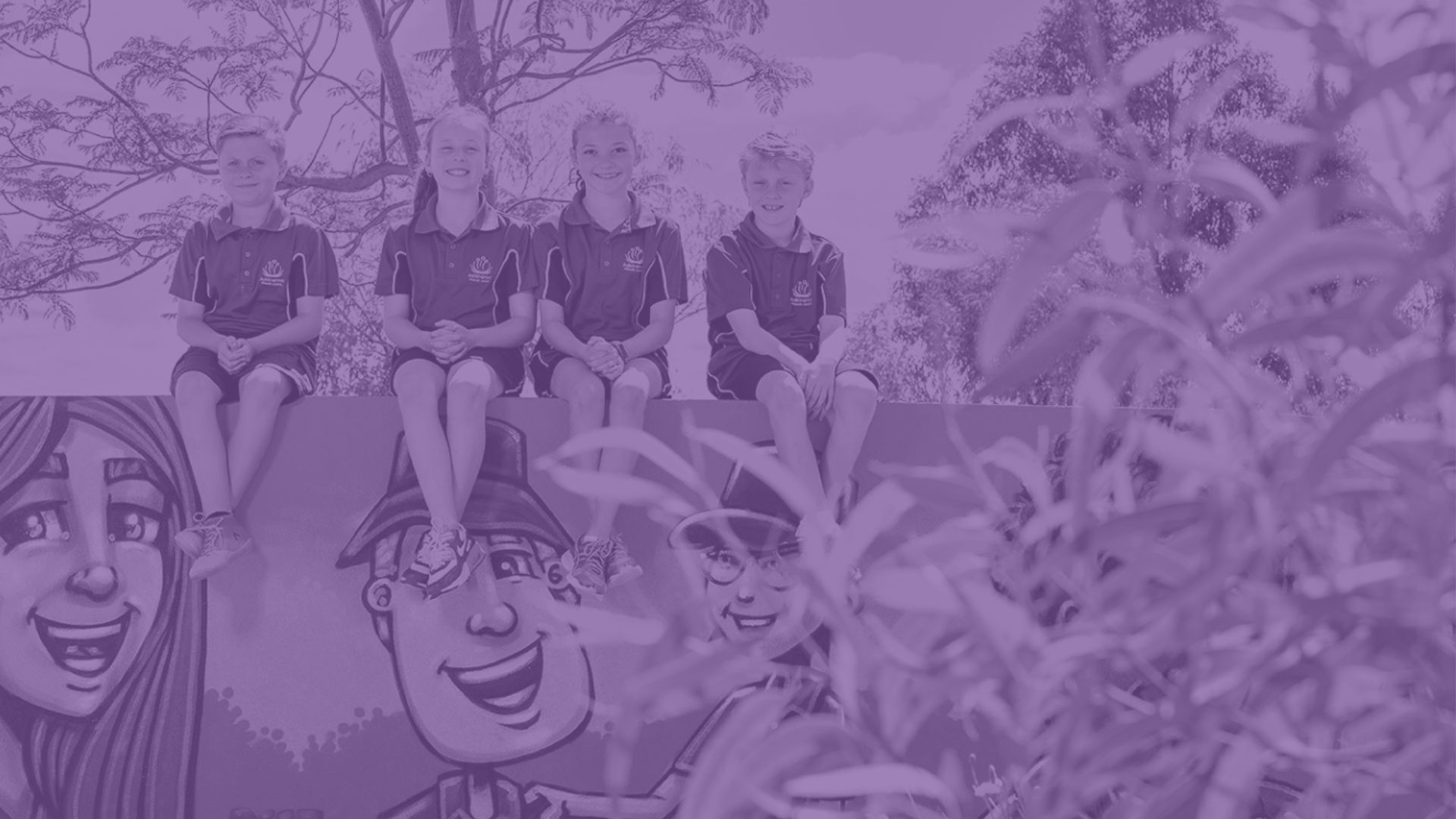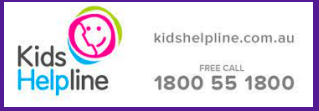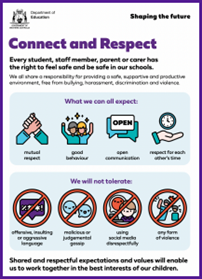
Bullying Policy
Responding to Bullying at
At Aubin Grove Primary School, our Responding to Bullying Education Approach is founded on the principles of Positive Psychology and prevention which also aligns with the Department of Education’s Connect and Respect Policy (2023). We take a strengths-based approach to education an up-skill our students in how to respond to difficult social situations so that all students have strategies available to them that are simple, easy to remember and act upon when necessary.
Staff have been involved in whole-school professional development to support our line of action in these 5 Strategies when Responding to Bullying or difficult social situations.
Our staff also know that there are:
- Universal consequences – positive behavioural reminders for all students
- Targeted consequences – giving student an opportunity to rectify their behaviour once issues and concerns have been identified using the Aubin Grove Positive Behaviour Guidelines
- Intensive course of action – when incidents are followed up with Line Managers
What is Bullying?
Bullying is when someone, or a group of people deliberately:
- Upset or hurt another person or
- Damage their property, reputation or social acceptance on more than one occasion.
It can involve an individual or a group misusing their power over one or more persons who feel unable to stop it from happening.
A single incident, conflict or fights between equals is not bullying.
Bullying is not the same as…
Being rude – being mean – conflict – respectful feedback – a friend putting in a boundary – natural consequences.
What can Bullying look and sound like?
Deliberate, targeted & repeated:
- Negative personal comments
- Aggressive behaviour
- Being unkind or mean
- Physical violence
- Cyberbullying
- Abusive behaviour
- Exclusion
5 Strategies to help us when we are faced with a challenge!
- Ignore the behaviour
- Be kind “please don’t talk to me like that”
- Walk Away from the person
- Say Something to an adult, teacher or a group-up
- Speak Bravely to the person “You need to stop now!
Who can help you?
Building a safety network of trusted friends, family members, adults and teachers can be significantly beneficial to supporting young people as they deal with life’s social situations.
What can parents do?
Try not to over-react. Listen calmly and try to work out the fact. Be aware of the signs of distress in your child that could be caused by being bullied:
- Unwillingness to attend school
- A pattern of illness (e.g. sick on school mornings)
- A decline in the quality of school work
- Becoming withdrawn and lacking confidence
- Crying at night, having nightmares, lack of sleep
- Having unexplained bruises, cuts, scratches
- Beginning to bully other children or siblings
- Becoming aggressive or unreasonable
- Asking for money or starting to steal
- An uncharacteristic desire to be with an adult
If your child is being bullied, discourage any planned retaliation, either physical or verbal, by discussing the positive strategies that can be used.
Sometimes your child may tell you about a bullying incident but is too frightened to report it. This protects the person who is bullying and prevents staff from helping. Please assure your child that their identity will be kept safe.
Do not deal directly with the other children or their parents but work through and with the school. Contact the school and make an appointment with staff or admin.
Parents can help their child become more assertive and resilient by modelling such behaviour and by talking about strategies that can be used. It is important for adults to not overprotect students who have been bullied. An adult protector will not always be around to shield them.
For more information and understanding on how to help your child if you suspect they are being bullied, please go to:
https://raisingchildren.net.au/school-age/behaviour/bullying/school-bullying-helping

What if my child is bullying others?
All children are capable of bullying others. It is normal for parents to feel shocked, embarrassed and even doubtful if they find that their child has been bullying others. To help discourage children from bullying others, parents can:
- Talk about bullying behaviour with them and discuss why they may want to bully someone.
- Suggest other more positive actions than bullying.
- Help your child to be aware of the effects that bullying has on others.
- Be alert and discourage bullying behaviour at home.
- Encourage and provide opportunities for children to openly discuss any issues or concerns with you.
- Teach your children what is appropriate behaviour and how you expect them to treat others.
Who can parents talk to about bulling at our school?
Your child’s Classroom Teacher or Deputy Principal.








